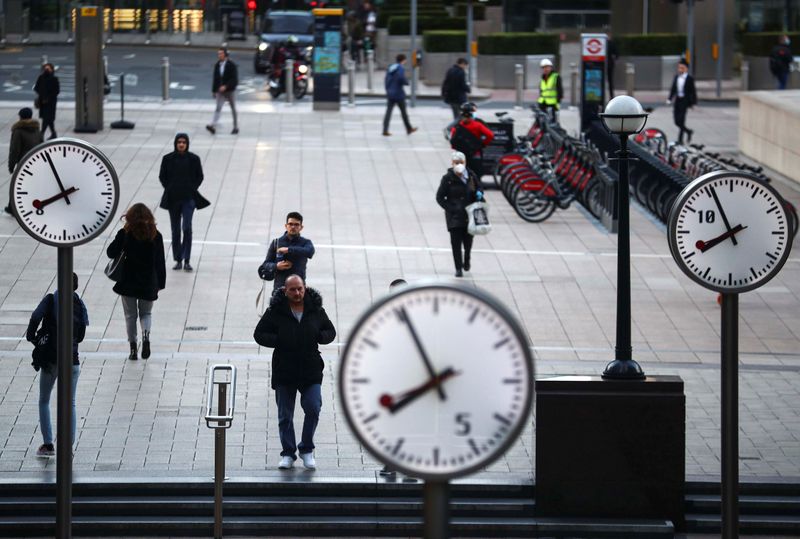LONDON (Reuters) - British workers' average hourly output rose by 0.4% last year, despite a fall of nearly 10% in total production due to the coronavirus pandemic, as lower-paid jobs bore the brunt of COVID lockdown measures.
Britain's Office for National Statistics said the productivity impact of last year's economic collapse - the biggest in more than 300 years - differed from the 2008-09 financial crisis due to the types of jobs affected.
"Although there was substantial volatility during the year, this contrasts with a slow and steady decline in productivity during the 2008-09 economic downturn," the ONS said.
Many workers in relatively low-paid retail and hospitality roles lost their jobs or were furloughed last year, while employees able to work from home were typically in higher-paid sectors which boost the productivity numbers.
During the 2008-09 recession, there was a greater loss of high-paid financial services jobs, exacerbating a longer-term slide in productivity growth which began before the crisis and persisted for years afterwards.
The ONS said productivity within the retail sector itself increased sharply during the second half of last year as businesses partly reopened and a shift to online shopping intensified.
Online retail employs fewer staff compared with traditional stores, and those shops which did stay open - such as supermarkets - tended to be larger than average, both factors which boost measured productivity.
However, output per hour in the public sector was 13.0% lower in the final quarter of 2020 than a year before. The ONS said this reflected a sharp increase in COVID-related spending - such as on costly personal protective equipment and COVID testing programmes - while measured output fell slightly.

Output per hour for the whole economy in the final quarter of 2020 was 0.7% lower than a year earlier, a slightly smaller decline than an earlier flash estimate of a 1.1% decline.